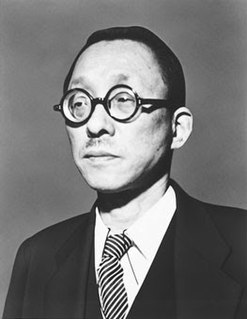A Quote by Indira Gandhi
That's always been my philosophy. - I've never thought of the consequences of a necessary action.
Quote Topics
Related Quotes
but it is also true, if this brings her any consolation, that if, before every action, we were to begin weighing up the consequences, thinking about them in earnest, first the immediate consequences, then the probably, then the possible, then the imaginable ones, we should never move beyond the point where our first thought brought us to a halt.
That wise Men have in all Ages thought Government necessary for the Good of Mankind; and, that wise Governments have always thought Religion necessary for the well ordering and well-being of Society, and accordingly have been ever careful to encourage and protect the Ministers of it, paying them the highest publick Honours, that their Doctrines might thereby meet with the greater Respect among the common People.
Philosophy is the science of estimating values. The superiority of any state or substance over another is determined by philosophy. By assigning a position of primary importance to what remains when all that is secondary has been removed, philosophy thus becomes the true index of priority or emphasis in the realm of speculative thought.
Exasperation with the threefold frustration of action -- the unpredictability of its outcome, the irreversibility of the process, and the anonymity of its authors -- is almost as old as recorded history. It has always been a great temptation, for men of action no less than for men of thought, to find a substitute for action in the hope that the realm of human affairs may escape the haphazardness and moral irresponsibility inherent in a plurality of agents.
In other words, the propositions of philosophy are not factual, but linguistic in character - that is, they do not describe the behaviour of physical, or even mental, objects; they express definitions, or the formal consequences of definitions. Accordingly we may say that philosophy is a department of logic. For we will see that the characteristic mark of a purely logical enquiry, is that it is concerned with the formal consequences of our definitions and not with questions of empirical fact.
Once you change your philosophy, you change your thought pattern. Once you change your thought pattern, you change your attitude. Once you change your attitude, it changes your behavior pattern and then you go on into some action. As long as you gotta sit-down philosophy, you’ll have a sit-down thought pattern, and as long as you think that old sit-down thought you’ll be in some kind of sit-down action.











































